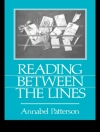This volume provides a comprehensive account of how scholarship on affect and scholarship on texts have come to inform one another over the past few decades. The result has been that explorations of how texts address, elicit, shape, and dramatize affect have become central to contemporary work in literary, film, and art criticism, as well as in critical theory, rhetoric, performance studies, and aesthetics. Guiding readers to the variety of topics, themes, interdisciplinary dialogues, and sub-disciplinary specialties that the study of interplay between affect and texts has either inaugurated or revitalized, the handbook showcases and engages the diversity of scholarly topics, approaches, and projects that thinking of affect in relation to texts and related media open up or enable. These include (but are not limited to) investigations of what attention to affect brings to established methods of studying texts—in terms of period, genre, cultural contexts, rhetoric, and individual authorship.
Зміст
1 Introduction: Affect and Texts: Contemporary Inquiry in Historical Contexts32 Place-in-Process in Colm Tóibín’s The Blackwater Lightship: Human Affect and the Physical Environment.- 2 Affect and Emotion: James, Dewey, Tomkins, Damasio, Massumi, Spinoza.- 3 Affect Studies and Cognitive Approaches to Literature.- 4 The Bio-Cultural Evolution of Language and Prosocial Emotions.- 5 Trust in Theatre.-6 Social Identity: Categorization, Cognition, and Affect.-7 Affective Aversion, Ethics, and Fiction.- 8 Affect and Narratology.- 9 The Turn to Affect: Emotions without Subjects, Causality without Demonstrable Cause.-10 Are there States of Mind Which We Can Call “Inner Sensuousness”?.- 11 Affect and Intention in Rhetoric and Poetics.- 12 Empathy and Love: Types of Textuality and Degrees of Affectivity.- 13 “That’s Deep!”: The Role of Being Moved and Feelings of Profundity in the Appreciation of Serious Narratives.- 14 The Priority of Form: Kenneth Burke and the Rediscovery of Affectand Rhetoric.- 15 Tragedy “Before” Pity and Fear.- 16 Narrative and Affect in Epic, Romance, and the Novel.- 17 Empathy’s Neglected Cousin: How Narratives Shape Our Sympathy.- 18 Laurence Sterne’s “Poor Maria” as Model of Empathic Response.-19 Film and Affect, Theories Entwined: The Case of the War Genre in Saving Private Ryan (Steven Spielberg, 1998).- 20 Medieval English Texts and Affects: Narratives as Tools for Feeling.- 21 Rhythmic Cognition in Late Medieval Lyrics: BL MS Harley 2253.-22 A Wild Fable: Affect and Reception of Fernando de Rojas’ Celestina (1499).- 23 Don Quixote’s Affective Thoughts.- 24 Descartes, Emotions and the Inner Life of the Subject.- 25 “The History and Science of Feeling”: Wordsworth’s Affective Poetics, Then and Now.- 26 Kierkegaard’s “Ugly Feelings”.- 27 Affect and the Victorian Novel.-28 Affect in Film Music: A Brief History.- 29 Affect and Fascism in Lolita.- 30 From Bateman to Rat Man: American Psycho’s Unnatural Selections.- 31 Fascism, Torture, and Affect in Postwar Spain: Memoria Histórica Narratives and Audience Empathy.
Про автора
Donald R. Wehrs is Hargis Professor of English Literature at Auburn University, where he teaches eighteenth-century British literature, critical theory, and comparative literature. He is editor of Levinas and Twentieth-Century Literature (2013), co-editor of Cognition, Literature, and History ( 2014), and co-editor of Levinas and Nineteenth-Century Literature (2009). He has published three monographs on twentieth-century African fiction—Pre-Colonial Africa in Colonial African Narratives (2008), Islam, Ethics, Revolt (2008), and African Feminist Fiction and Indigenous Values (2001)—as well as book chapters and journal articles on British fiction, Shakespeare, postcolonial literature, and medieval romance.
Thomas Blake is Assistant Professor of English and Philosophy at Monroe Community College, New York. He is author of “Maternity, Morality, and Metaphor: Galdos’s Doña Perfecta, Lorca’s The House of Bernarda Alba, and Andalusian Culture, ” in Cognition, Literature, and History (2014) and “Staging Heidegger: Corporeal Philosophy, Cognitive Science, and the Theater” in Destiny, the Inward Quest, Temporality and Life (Springer, 2011).












